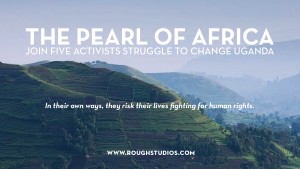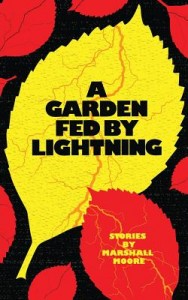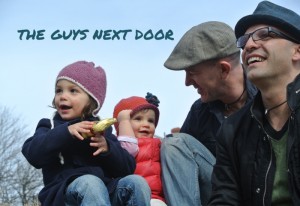 The Pearl of Africa
The Pearl of Africa
Directed by André Wallström and
Jonny von Wallström
Rough Studios
Set in Uganda, this is a quiet docudrama that seems to struggle at times to fill its ninety minutes. Its title is drawn from Winston Churchill’s 1909 memoir My African Journey, in which he praised Uganda’s natural beauty, calling it “the pearl [of Africa.].” Cleo, who’s in her twenties, always knew that she was a transwoman. She and Nelson, a straight man, had known each other in high school and became romantically involved as adults. Now they’re seen to be very much in love. Nelson is quiet and introspective, Cleo outgoing and fun-loving. Their country’s homophobia is shown in just a few brief, violent excerpts of TV news. The role played by right-wing American preachers in inciting homophobia in Africa is not explored. Some of Cleo’s family who were caught up in the hatred abandoned her, and her father beat her. Fortunately, her mother always stood by her and was her closest ally. After Cleo was outed along with other activists on the front page of a local newspaper, she was forced to quit her job, and she and Nelson had to go into hiding for over a month. Her mother brought them food. As Cleo says in one of her many eloquent commentaries, those without friends or family to help them would starve to death or die of neglect.
After coming out of hiding, the couple flew to Thailand so that Cleo could undergo gender reassignment surgery; in her case, both genital surgery and breast implants were carried out at the same time. (A Variety online article from November 20, 2016, stated that her surgery was crowd-funded.) Deeply intimate scenes show her and Nelson in the moments before and after her surgery. In a tribute to modern technology, the talents of her Thai surgical team, and her own fortitude, she was up and about only days after surgery. When Cleo and Nelson returned to Africa, they settled in Nairobi. Cleo is trying, as yet unsuccessfully, to get her name and gender changed on her passport, which would make her Uganda’s “first accepted transwoman.”
Martha E. Stone
The Guys Next Door
Directed by Allie Humenuk and Amy Geller
Center for Independent Documentary
There’s much that remains unexplored in the 74-minute documentary The Guys Next Door, which is about a married gay couple, Erik and Sandro, who have recently moved from their Brooklyn apartment to a large home in Portland, Maine. Erik, originally from Maine, is a psychotherapist. Sandro, a writer, language teacher, and stay-at-home father, is Sardinian, and is a magnetic and vivacious presence. Rachel, who’s been a close friend of Erik’s since they were students at Bates College, lives with her husband Tony (also a Bates graduate) and three teenage children in Newton, Mass. After learning how difficult and expensive it is for gay men to have children, Rachel offered up her uterus—twice. She had always loved the feeling of being pregnant and says that her husband and children were completely accepting of her decision. The two little girls, Rachel Maria and Eleonora, who are seen growing up during the course of the filming, are the products of donor eggs (the woman who donated was not interviewed for the movie) and the sperm of both men. Erik mentions, but all too briefly, that his now supportive family was once homophobic; his mother is shown as a very loving grandmother. He travels frequently for his work, a cause of tension between the two men, and mentions his own internalized homophobia. On a family vacation back home in Sardinia, Sandro talks about the impossibility of surrogacy in Italy and the amount of homophobia there. Had these and other family issues been explored in greater depth, a more multidimensional portrait of the family might have emerged.
Martha E. Stone
 A Garden Fed By Lightning
A Garden Fed By Lightning
by Marshall Moore
Signal 8 Press. 220 pages, $18.95.
Marshall Moore is a writer with an unusual sensibility. A previous novel, Bitter Orange, riffed on the intriguing premise that the hero was able to use his superpower only in morally ambiguous situations, thus heightening the dilemma. His new collection of stories, A Garden Fed By Lightning, consists of similarly ingenious takes on familiar themes: a young gay man in Hong Kong is forced to carve out an imaginary space for himself between two floors (“The Upstairs Room”); a man whose family members have all died in fires goes to Tokyo—that earthquake- and fire-prone city—to entertain thoughts of his own mortality. In the title story, a man meets a woman in Hong Kong who deliberately gives visitors bad directions in order to give them a novel experience, such as sending a Mormon missionary into the red light district. When she dupes the narrator into going to a gay bar, the encounter opens up a narrative the protagonist had never quite considered. The conceits in the book can be dark, and sometimes they crash and burn (as in “After Balenciaga,” in which designers meet each other in hell after death). In a few stories, the premise doesn’t feel fully grounded or explained.
In literature, there are many different kinds of writers: those who care most about style, character, or plot. Moore is definitely an “idea” writer, but he’s hard to categorize. Magical realism, science fiction, and myth-making all play a part in his stories. In the best of them, the conceits rise almost to the level of poetry. Most of the stories are fed by brilliant flashes of insight of the “what if” kind. In “Cambodia,” the final and perhaps the best story, the central conceit merges with a wonderfully world-weary sense of expatriate loneliness.
Dale Boyer







